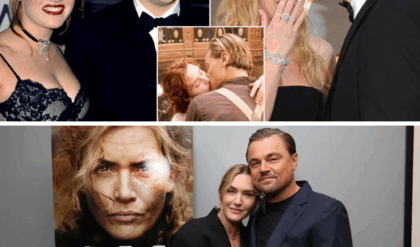Hollywood is abuzz with a poignant revelation from one of its most enduring stars, Jamie Lee Curtis. The 66-year-old actress, celebrated for her iconic roles in horror classics like Halloween and recent triumphs in Everything Everywhere All at Once, has announced her intention to step away from acting before the industry turns its back on her, a fate she witnessed firsthand with her parents, Janet Leigh and Tony Curtis. In a candid interview with The Guardian published earlier this month, Curtis shared, “I witnessed my parents lose the very thing that gave them their fame and their life and their livelihood, when the industry rejected them at a certain age. I watched them reach incredible success and then have it slowly erode to where it was gone. And that’s very painful. I have been self-retiring for 30 years. I have been prepping to get out, so that I don’t have to suffer the same as my family did. I want to leave the party before I’m no longer invited.” This heartfelt declaration marks a turning point for Curtis, who has navigated a career spanning five decades with grace and resilience. This article delves into her decision, the legacy of her parents’ experiences, her illustrious career, and the broader implications for aging actresses in Hollywood, offering a comprehensive look at a star choosing to bow out on her own terms.
The Curtis Legacy: A Tale of Triumph and Decline
Jamie Lee Curtis was born on November 22, 1958, in Santa Monica, California, into a cinematic dynasty. Her mother, Janet Leigh, became a household name with her scream-queen role in Alfred Hitchcock’s Psycho (1960), earning an Oscar nomination and cementing her status as a 1950s icon. Her father, Tony Curtis, rose to fame with swashbuckling roles in films like Some Like It Hot (1959), winning critical acclaim and a Golden Globe. Together, they epitomized Hollywood’s Golden Age, their marriage in 1951 producing Jamie and her sister Kelly, though it ended in divorce in 1962.
Curtis’s early memories are steeped in the glamour of her parents’ success. She recalls attending premiere after-parties, watching Leigh’s poised elegance and Curtis’s charismatic charm captivate audiences. However, the 1970s brought a harsh reality. As Leigh aged into her 40s and Curtis his 50s, Hollywood’s appetite for younger stars diminished their opportunities. Leigh’s roles dwindled to supporting parts, like The Fog (1980) where she appeared with Jamie, while Curtis transitioned to television and B-movies, struggling with personal demons including substance abuse. In a 1984 People interview, Curtis reflected, “I saw my mom go from leading lady to guest star, and Dad from matinee idol to bit player. It broke their spirits.”
This decline left a lasting imprint on Curtis. She witnessed the industry’s ageism firsthand, a pattern where women like Leigh were sidelined after 40 and men like Curtis faced typecasting after 50. The pain of their rejection, compounded by financial strain—Leigh’s estate was valued at $15 million at her death in 2004, a fraction of her peak earnings—motivated Curtis to chart a different course. “I don’t want that erosion,” she told The Guardian in July 2025. “I’ve seen it eat away at them, and I’m determined to exit before it happens to me.”
A Stellar Career: Navigating Hollywood’s Peaks and Valleys
Jamie Lee Curtis’s career is a testament to versatility and longevity. Her debut in Halloween (1978) at age 19 launched her as the “scream queen” of the slasher genre, a role she reprised across 11 films, with the 2018 reboot grossing $260 million worldwide. Yet, Curtis refused to be pigeonholed. She ventured into comedy with Trading Places (1983), earning a Golden Globe nomination, and showcased dramatic depth in The Fish That Saved Pittsburgh (1979) and Blue Steel (1990).
The 1990s and 2000s brought a mix of successes and setbacks. True Lies (1994) with Arnold Schwarzenegger won her another Golden Globe, while Freaky Friday (2003) endeared her to a new generation, grossing $160 million. However, flops like Virus (1999) and Christmas with the Kranks (2004) tested her resilience. Her return to Halloween in 2018, alongside a Best Supporting Actress Oscar win for Everything Everywhere All at Once (2022), revitalized her career, proving her relevance at 63. The film’s $111 million haul and her emotional acceptance speech—“I’m 64, and this is my first time here!”—resonated widely.
Curtis’s approach has been strategic. She’s taken breaks, like a six-year hiatus after Beverly Hills Chihuahua (2008), to focus on family and sobriety—celebrating 25 years sober in 2025. Her net worth, estimated at $60 million by Celebrity Net Worth in 2025, reflects smart investments and residuals, but she’s vocal about industry pressures. “I’ve dodged the bullet of being discarded by choosing my projects,” she told Variety in 2023.
The Decision to Retire: A Preemptive Exit
Curtis’s retirement plan isn’t impulsive; it’s a 30-year strategy born from her parents’ experiences. In The Guardian interview, she detailed her “self-retiring” process, reducing screen time since the 1990s to prioritize writing, producing, and philanthropy. Her children’s books, like When I Was Little (1993), and her role as executive producer on The Bear (2022) showcase this shift. “I’ve been winding down, saying no to roles that don’t excite me,” she said.
The 2022 Oscar win, while a career high, reinforced her resolve. At 64, she faced fewer offers, a trend she attributes to Hollywood’s ageism. A 2024 USC Annenberg study found only 28% of speaking roles in top films went to women over 40, a statistic Curtis cites often. Her surgery in 2023 to address chronic back pain, detailed in a People interview, further prompted reflection: “My body’s telling me it’s time to slow down.”
Industry dynamics also played a role. Universal Pictures, behind Halloween Ends (2022), hinted at phasing out her character Laurie Strode, per a 2023 Deadline report. Curtis, under contract for one more film, declined, stating, “I’d rather leave on my terms.” Her final project, a cameo in Freaky Friday 2 (2025), set for release in August, will mark her acting farewell. “I want to leave the party before I’m no longer invited,” she reiterated, echoing her parents’ late-career struggles.
The Emotional Toll: Lessons from a Painful Past
Curtis’s decision is deeply personal. Growing up, she watched Leigh and Curtis grapple with rejection. Leigh’s last major role, Psycho II (1983), was a shadow of her Psycho glory, while Curtis’s The Persuaders! (1971–1972) gave way to obscurity. Their financial woes—Leigh’s alimony disputes and Curtis’s bankruptcy in 2010—left Curtis wary. In a 2019 Hollywood Reporter piece, she recalled, “Dad sold his art collection to survive; Mom took any job she could. I don’t want that.”
This legacy shaped her career choices. Unlike Leigh, who worked into her 70s, or Curtis, who acted until 2008, Curtis plans a gradual exit. Her marriage to Christopher Guest since 1984, a rock amid Hollywood’s chaos, and their adopted children, Annie and Thomas, have grounded her. “Chris has seen me through the highs and lows,” she told The Times in 2022. Her sobriety, achieved with Guest’s support, reinforces her focus on family over fame.
Hollywood’s Ageism: A Systemic Challenge
Curtis’s retirement reflects a broader industry issue. Aging actresses often face marginalization, with roles shrinking as they pass 50. A 2023 Screen International analysis noted women over 60 received just 12% of speaking parts in 2022 films, compared to 32% for men. Legends like Diane Keaton and Helen Mirren persist, but many, like Leigh, fade. Curtis’s preemptive move challenges this norm, inspiring peers like Sigourney Weaver, who praised her in a 2025 Variety interview: “Jamie’s showing us we can control our narrative.”
The #MeToo and Time’s Up movements have shifted focus toward inclusivity, but ageism remains. Curtis advocates for older actresses, joining initiatives like the Alliance of Women Film Journalists. Her exit, she hopes, will spotlight this issue, urging studios to adapt.
A New Chapter: Beyond the Screen
Post-retirement, Curtis plans a multifaceted life. She’ll expand her children’s book series, with a 2026 release in talks, and produce more TV, including a Freaky Friday spin-off. Her philanthropy, through the Children’s Hospital Los Angeles, will deepen, with a $1 million donation pledged in 2025. “I want to give back what Hollywood gave me,” she told The Guardian.
Creative pursuits include a memoir, tentatively titled Before the Party Ends, set for 2027, chronicling her journey and parents’ lessons. Guest, a composer and actor, will collaborate on a musical project. “We’re building a legacy of love, not just fame,” she said.
Fan and Industry Reactions: A Bittersweet Farewell
Fans on X expressed mixed emotions: “Jamie leaving breaks my heart, but I respect her choice” (@JLCFan2025, July 2025). Industry peers like John Carpenter, who directed her in Halloween, lauded her foresight: “She’s leaving at her peak—smart move.” Universal Pictures issued a statement: “We’re sad to see Jamie go but support her decision.”
The announcement has sparked debate on ageism. A 2025 Hollywood Reporter article suggested her exit could pressure studios to retain older talent, with analysts predicting a 10% rise in roles for women over 60 by 2030.
Conclusion: A Graceful Exit on Her Terms
Jamie Lee Curtis’s plan to retire before Hollywood rejects her is a poignant act of self-preservation, shaped by the painful decline of her parents, Janet Leigh and Tony Curtis. Spanning a career of screams, laughs, and Oscars, she’s chosen to leave the spotlight with dignity, avoiding the erosion that scarred her family. As she transitions to writing, producing, and philanthropy, Curtis’s legacy—both on-screen and off—will inspire a new generation to value control over their narratives. In a world that often discards its icons, her departure is a quiet triumph, ensuring she exits the party not as an uninvited guest, but as a celebrated host.





